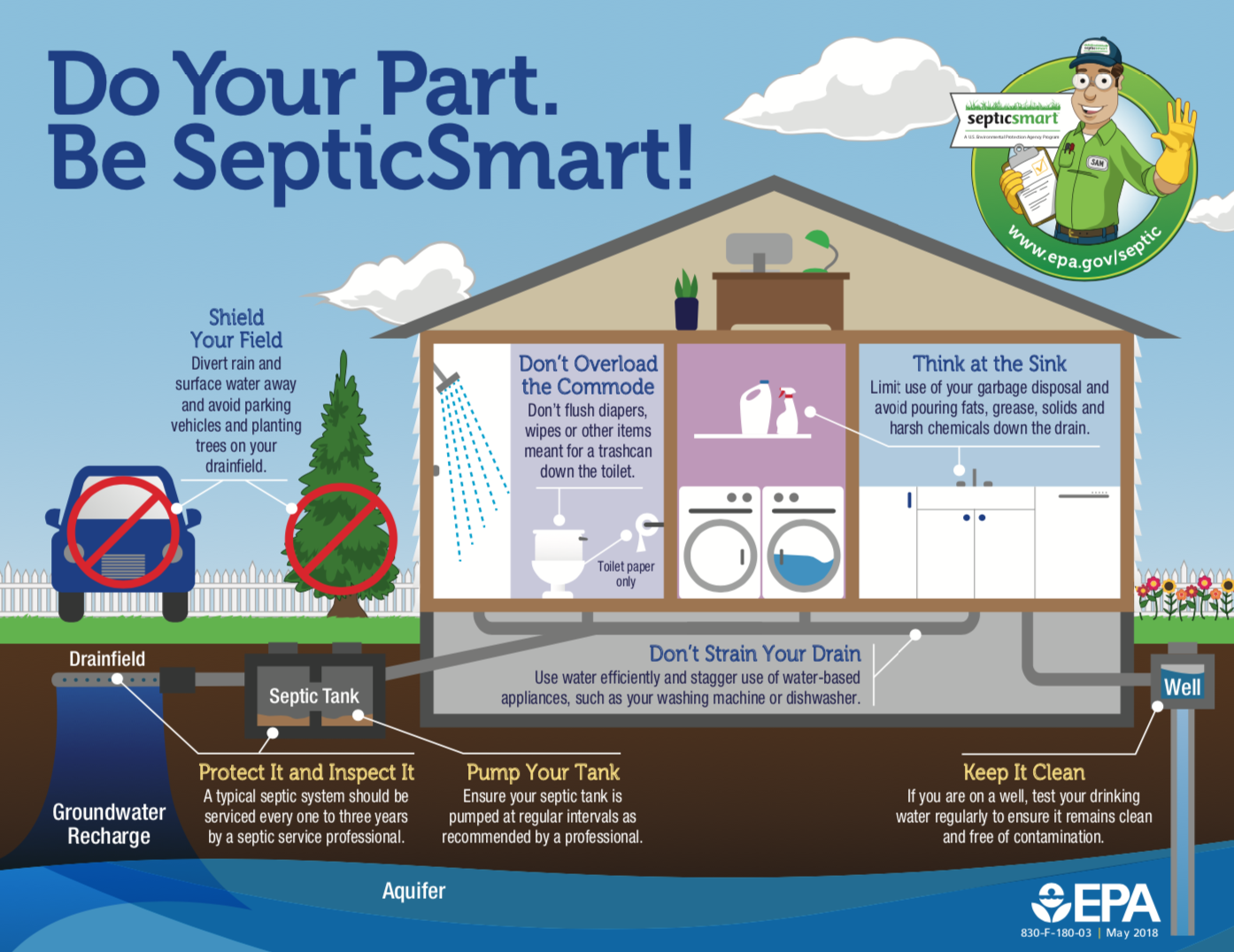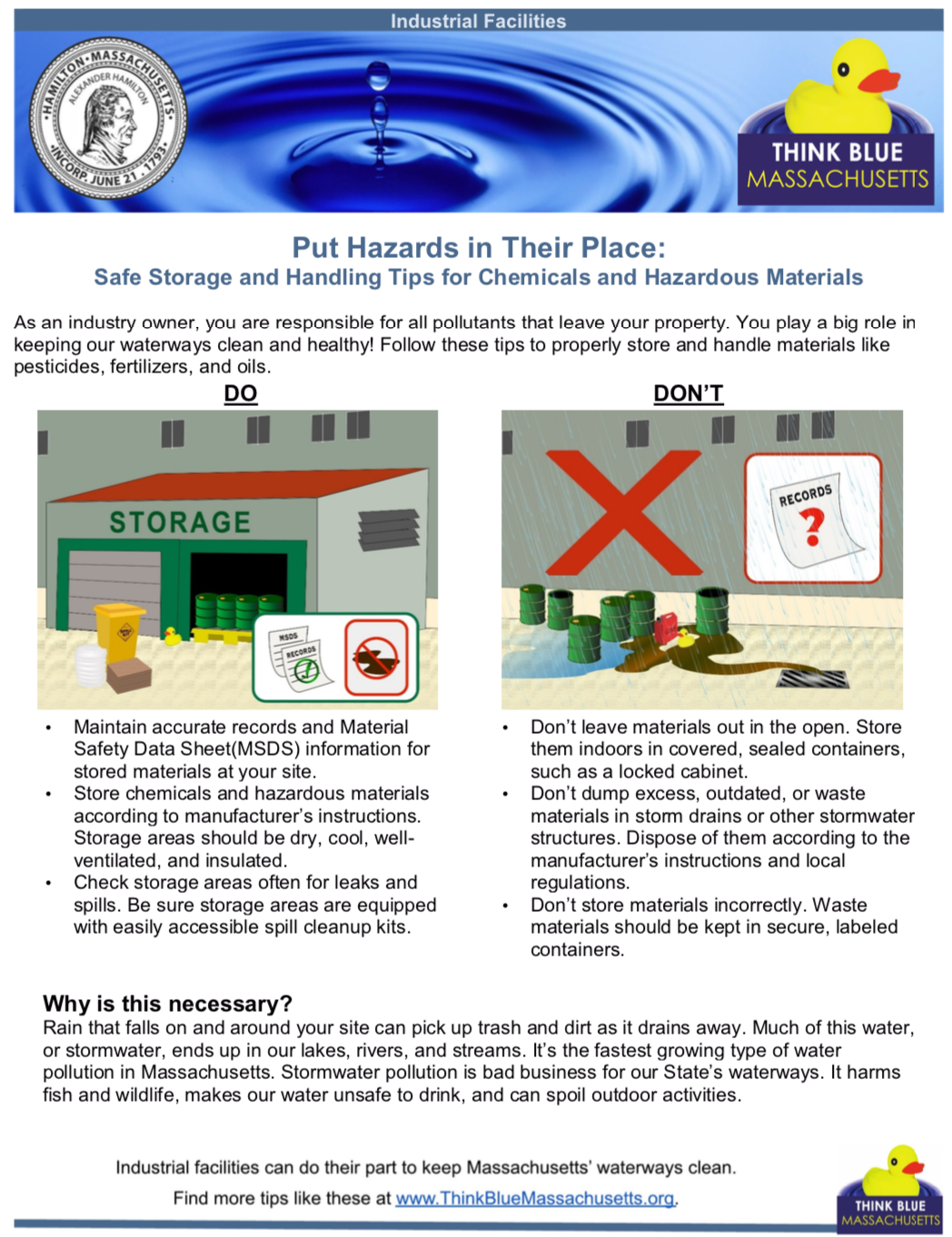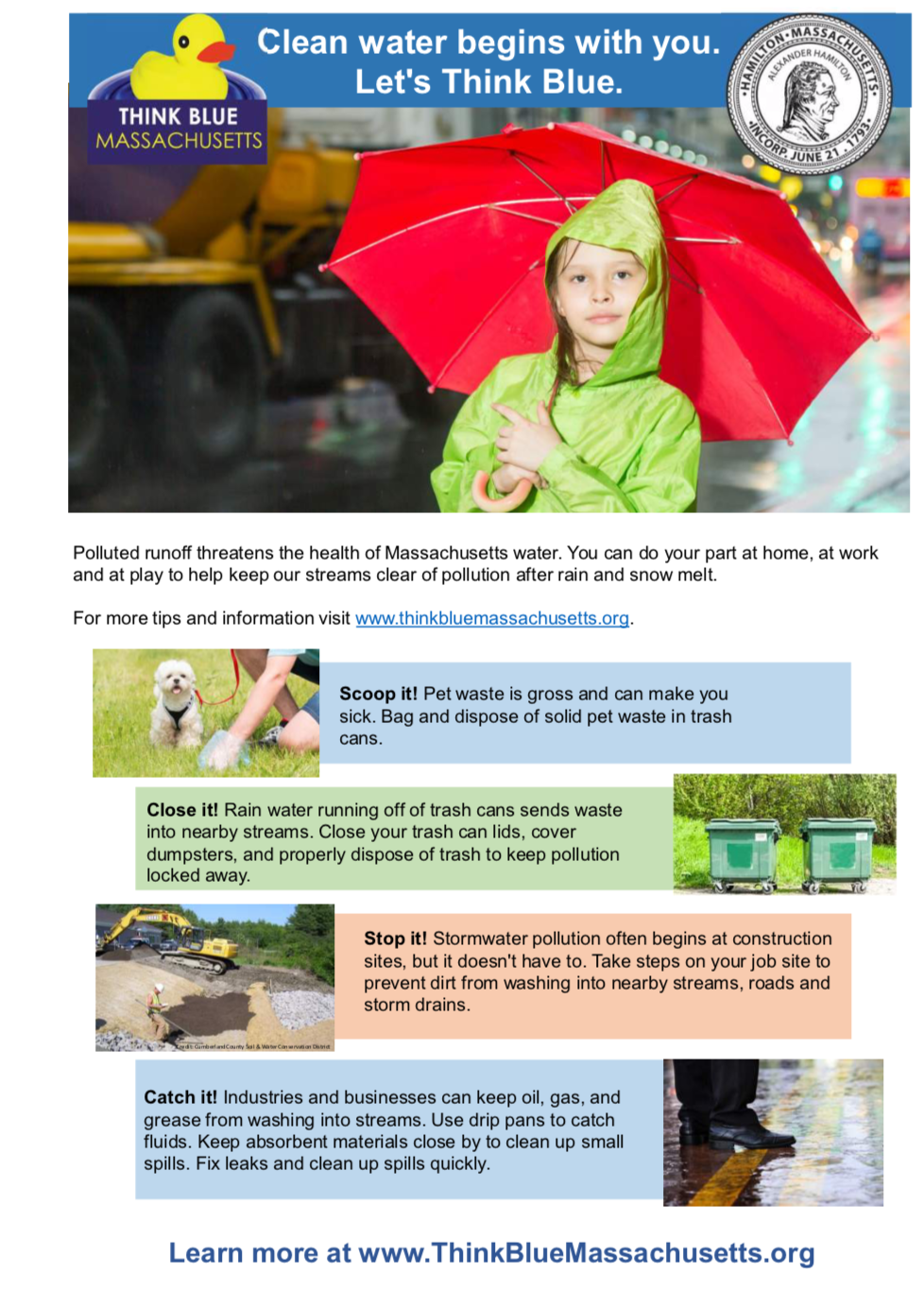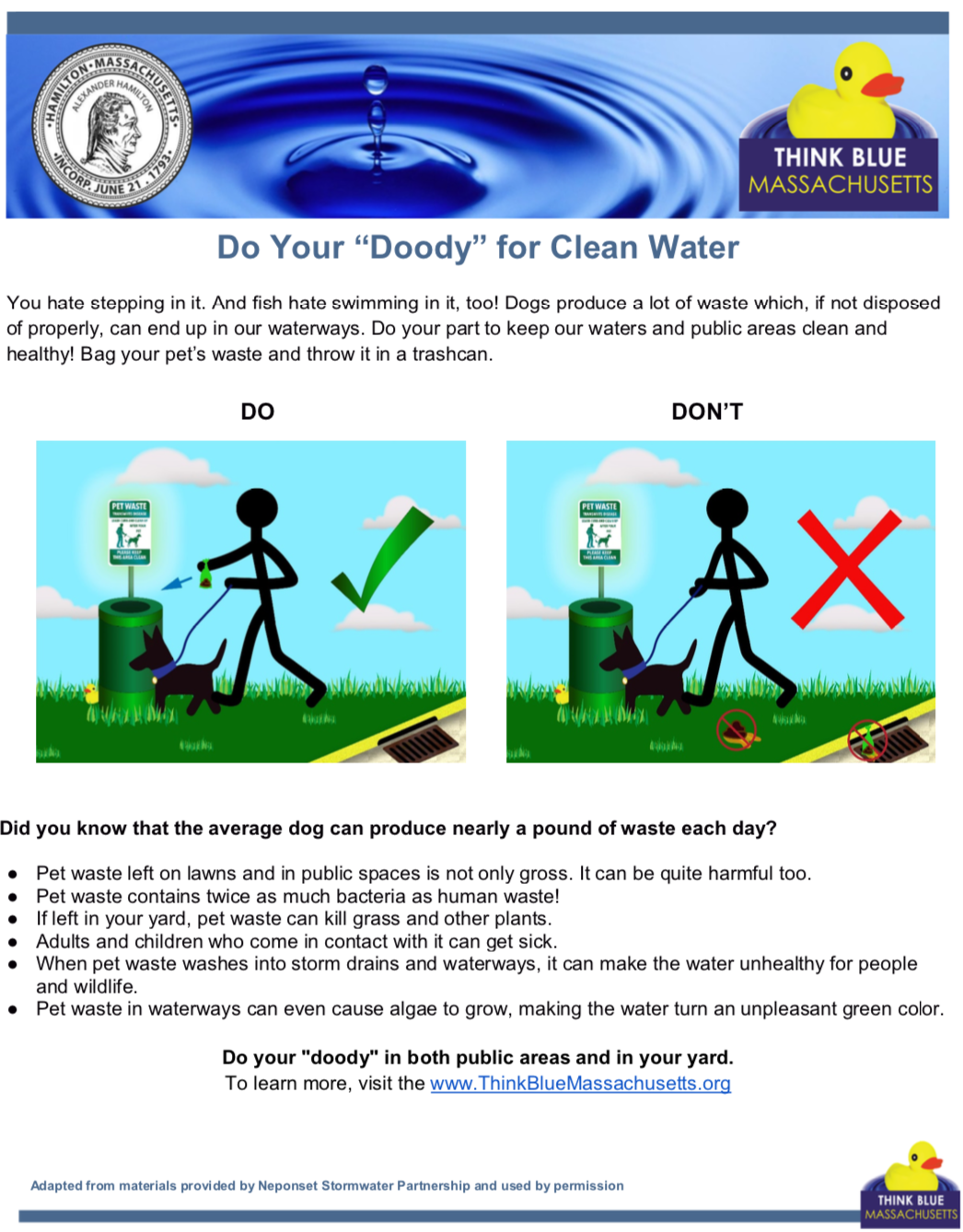Stormwater
Stormwater – NPDES Compliance
The Clean Water Act (1972) authorizes the Environmental Protection Agency (EPA) to regulate point sources that discharge pollutants into waters of the United States through the National Pollutant Discharge Elimination System (NPDES) permit program. Objectives of the NPDES Stormwater Program are to reduce the discharge of stormwater pollutants to the maximum extent practicable, to protect water quality, and to satisfy the appropriate water quality requirements of the Clean Water Act. As a suburban community, Danvers is regulated by this permit program.
Stormwater is the water that runs off the land surface when it rains or snow melts. It enters the Town’s storm drain system and flows directly to local lakes, streams, and wetlands. Stormwater runoff from undeveloped land is typically low since most rain or snow melt infiltrates into the ground or is lost to evaporation. Additional runoff from developed areas is created from impervious surfaces like streets, parking lots, and rooftops that prevent stormwater from naturally soaking into the ground.
Stormwater from developed areas typically contains a number of pollutants, such as oil and grease from roadways and parking lots, pesticides and fertilizers from lawns, sediment from construction sites, sand and dirt from roadway maintenance practices, and carelessly discarded trash such as cigarette butts, wrappers, and plastic bottles. When these pollutants enter water bodies, they can contaminate drinking water supplies, hinder recreation activities, and harm aquatic and other wildlife habitats.
In addition to washing pollutants into our surface waters, improperly managed storm water runoff can result in soil erosion and flooding.
MS4 General Permit Compliance
2024 Hamilton Storm Water Management Plan
Do Your Part





